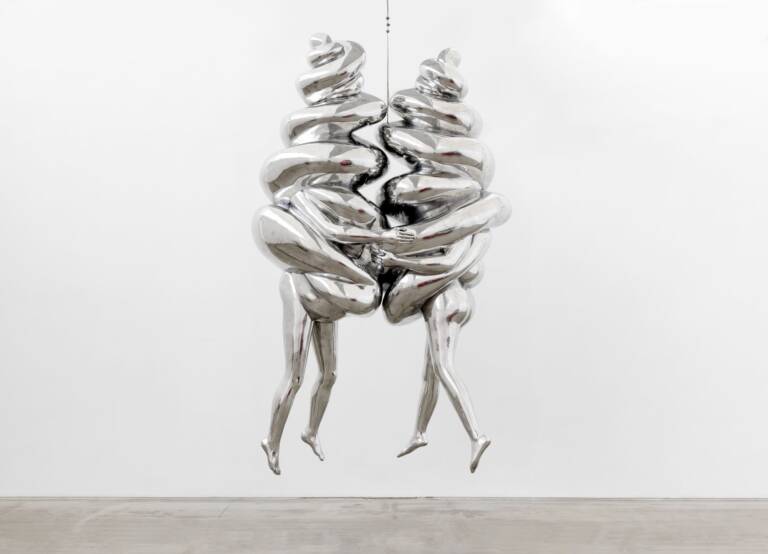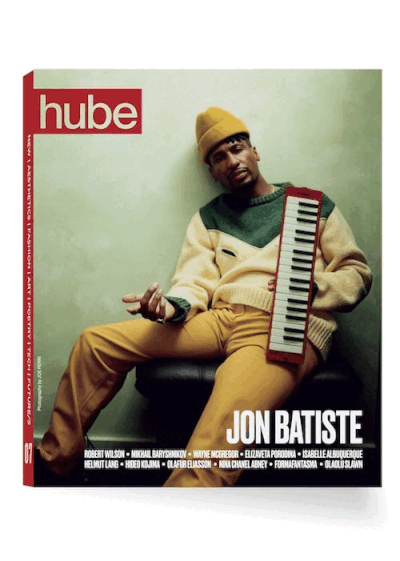This autumn, the Hoam Museum of Art will unveil Louise Bourgeois: The Evanescent and the Eternal, a major retrospective that situates Louise Bourgeois’ art as one of the most influential women artists. Opening on August 30th, 2025, and running until January 4th, 2026, the presentation marks the first large-scale Louise Bourgeois exhibition in Korea in 25 years.
Louise Bourgeois’ exhibition 2025: a journey through memory and emotion
The Louise Bourgeois exhibition 2025 will feature more than 110 works spanning the artist’s seven-decade career. Bourgeois, who was born in Paris in 1911 and lived in New York until her passing in 2010, remains one of the most compelling voices in modern and contemporary art. Known primarily for her sculpture, but also for painting, printmaking, and installation, she explored universal themes of love, memory, fear, and abandonment through deeply personal imagery.
The title The Evanescent and the Eternal, drawn from her own writings, reflects Bourgeois’s fascination with dualities: masculine and feminine, conscious and unconscious, strength and fragility. This tension is at the core of her artistic language, which has inspired generations of artists worldwide.
Influential Women Artists: Louise Bourgeois’ enduring legacy
As one of the influential women artists of the twentieth century, Bourgeois forged a path that combined autobiography with radical experimentation. Her works are charged with raw emotion yet balanced by formal precision, bridging the personal and the universal.
Among the highlights of the show are:
- Destruction of the Father (1974) — a visceral installation that stages an imagined act of revenge against a domineering father figure, reflecting Bourgeois’s exploration of childhood trauma.
- Janus Fleuri (1968) — a bronze form fusing male and female anatomies, symbolizing the coexistence of opposites within the human psyche.
- Red Room (Parents) (1993) — part of her celebrated Cells series, offering an intimate space where memory, desire, and loss are crystallized.
Later textile works and drawings, infused with fragility and repair, reveal how the artist turned to fabric and thread as metaphors for healing and reparation.
A unique experience for South Korean audiences
The exhibition unfolds across two floors of the museum, designed to embody the dualities that define Bourgeois’s practice: the lower floor suggesting order and rationality, while the upper level immerses visitors in emotional intensity and the unconscious. A special element of the project is the integration of the artist’s writings, projected in light installations by American Conceptual artist Jenny Holzer.
Organized in collaboration with The Easton Foundation, the exhibition follows celebrated showings in Sydney, Tokyo, and Taipei before concluding its Asia-Pacific tour in Korea. For audiences at Hoam Museum of Art, this Louise Bourgeois exhibition offers a rare chance to experience the depth and complexity of one of the most influential artistic voices of the last century.
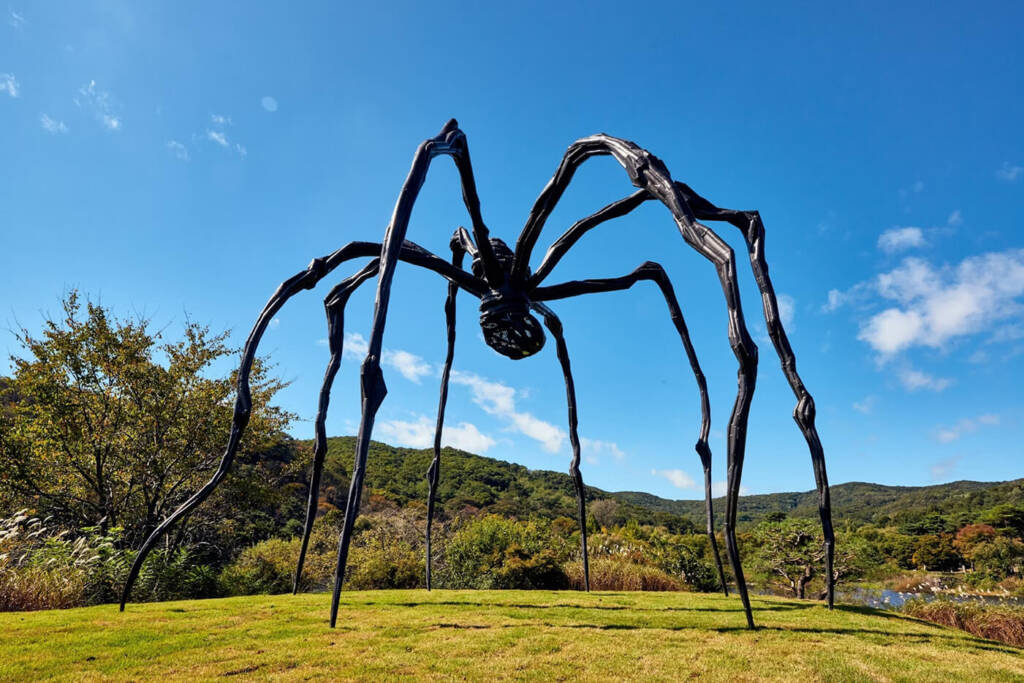
Maman at the Hoam Museum of Art
© THE EASTON FOUNDATION / licensed by SACK, Korea
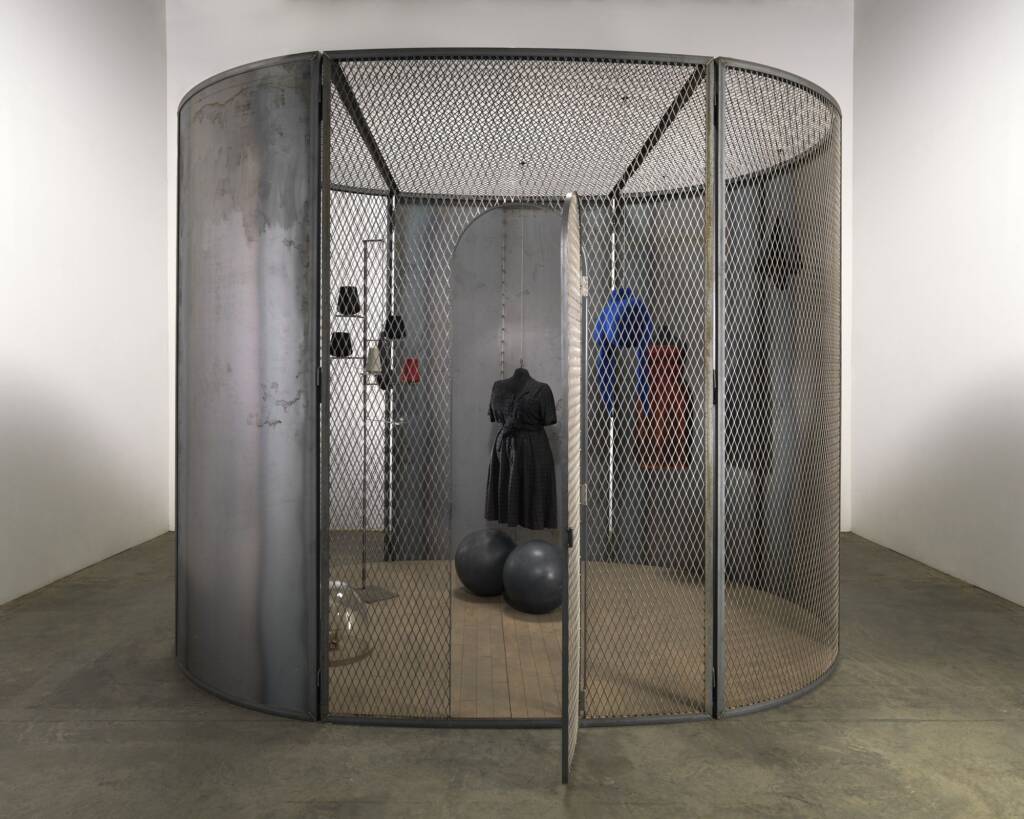
Cell (Black Days), 2006, Steel, fabric, marble, glass, rubber, thread and wood, 304.8 x 397.5 x 299.7 cm.
Photography by CHRISTOPHER BURKE, © THE EASTON FOUNDATION / licensed by SACK, Korea
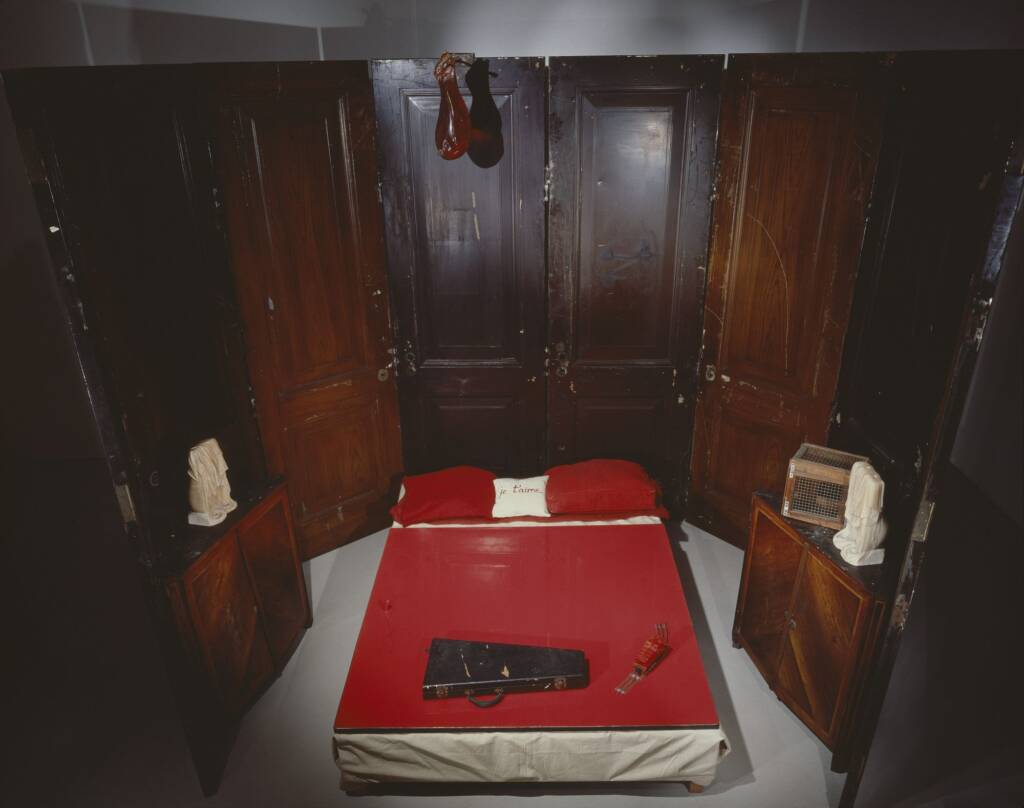
Red Room (Parents), 1994, Mixed media, 247.6 x 426.7 x 424.1cm.
Photography by PETER BELLAMY, © THE EASTON FOUNDATION / licensed by SACK, Korea
